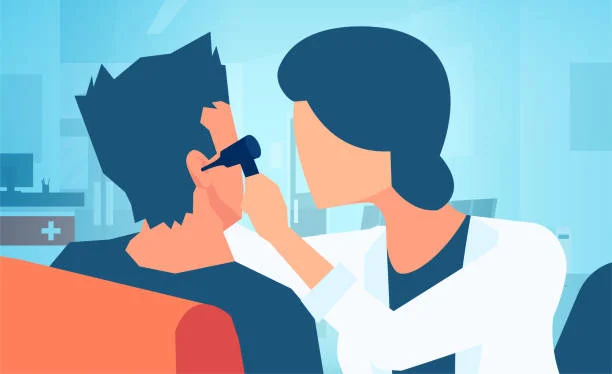Living with tinnitus the perception of ringing, buzzing, or hissing sounds in the ears can be frustrating and exhausting. For some, it’s a mild distraction; for others, it interferes with sleep, focus, and quality of life. Because tinnitus has many possible causes, from hearing loss to stress or underlying health conditions, treatment requires a tailored approach.
The good news is that modern research and technology have led to new, effective ways to manage tinnitus. While there’s no universal cure, a tinnitus specialist can guide patients through the latest treatments to reduce symptoms, improve comfort, and restore peace of mind.
In this article, we’ll explore the latest treatments every tinnitus specialist recommends and how they work.
Discover related stories that add extra depth and knowledge to what you just read.
1. Hearing Aids with Tinnitus Masking Features
For individuals with hearing loss, hearing aids are often the first line of treatment. Today’s advanced devices do more than amplify sound they include tinnitus masking features that play soothing sounds, like soft white noise or gentle tones, to cover up the ringing in the ears.
By improving overall hearing and reducing the brain’s focus on tinnitus, these devices help patients experience greater relief in daily life. Specialists often recommend them for people who experience both tinnitus and age-related or noise-induced hearing loss.
2. Sound Therapy
Sound therapy involves using external sounds to change the brain’s perception of tinnitus. This can include:
- White noise machines that generate constant background noise.
- Specialized apps that offer ocean waves, rain, or soft music.
- Customized programs designed by audiologists to target specific tinnitus frequencies.
A tinnitus specialist may recommend sound therapy to retrain the auditory system, making the ringing less noticeable over time.
3. Tinnitus Retraining Therapy (TRT)
TRT is a long-term, evidence-based approach that combines sound therapy with counseling. The goal is to train the brain to “filter out” tinnitus signals so they no longer feel intrusive.
Patients work with specialists to develop a personalized plan, typically involving wearable sound generators and ongoing guidance. Over months of consistent use, many people find that their awareness and stress around tinnitus decreases significantly.
4. Cognitive Behavioral Therapy (CBT)
Because tinnitus often leads to anxiety, frustration, or even depression, addressing the emotional response is essential. Cognitive Behavioral Therapy (CBT) helps patients change negative thought patterns, reduce stress, and improve coping strategies.
A tinnitus specialist may work alongside a mental health provider to integrate CBT into treatment. While CBT doesn’t “cure” tinnitus, it reduces its impact on quality of life and helps patients regain control.
5. Stress Management and Relaxation Techniques
Stress and tinnitus create a vicious cycle stress makes tinnitus worse, and tinnitus increases stress. Specialists recommend techniques such as:
- Deep breathing and meditation
- Progressive muscle relaxation
- Yoga or tai chi
- Mindfulness training
By calming the nervous system, these practices lower tinnitus intensity and help patients feel more in control.
6. Medication Support (When Necessary)
While there is no FDA-approved medication specifically for tinnitus, doctors sometimes prescribe drugs to address related issues like anxiety, depression, or insomnia. These may include antidepressants or anti-anxiety medications, which help patients manage the emotional toll of tinnitus.
A tinnitus specialist typically considers medication only after non-invasive treatments are explored, and always as part of a comprehensive care plan.
7. Neuromodulation Devices
One of the most exciting recent developments in tinnitus treatment is neuromodulation. These devices use gentle electrical or sound stimulation to retrain the brain’s auditory pathways.
Examples include:
- Lenire®: A device combining tongue stimulation with sound therapy.
- Transcranial Magnetic Stimulation (TMS): A non-invasive procedure that uses magnetic fields to influence brain activity.
Though still emerging, these therapies show promise for patients with persistent or severe tinnitus.
8. Lifestyle Adjustments for Better Management
Specialists also emphasize the importance of lifestyle changes that support hearing health and reduce tinnitus severity. These may include:
- Limiting caffeine, alcohol, and nicotine, which can worsen symptoms.
- Protecting ears from loud noise with earplugs or noise-canceling headphones.
- Maintaining a balanced diet and regular exercise to improve blood flow and reduce stress.
These simple adjustments complement other treatments and empower patients to take control of their condition.
9. Nutritional Support and Supplements
While supplements are not a cure, some patients find relief through vitamins and minerals that support inner ear and nervous system health, such as magnesium, zinc, and vitamin B12. Specialists may recommend nutritional support as part of a holistic plan, though results vary from person to person.
10. Personalized Care from a Tinnitus Specialist
The most important treatment recommendation is personalized care. Because tinnitus affects everyone differently, a tinnitus specialist tailors treatments to the patient’s unique needs, combining hearing technology, therapy, lifestyle advice, and ongoing support.
Working closely with a specialist ensures patients don’t waste time on one-size-fits-all solutions, but instead receive a customized plan that addresses both the physical and emotional aspects of tinnitus.
Final Thoughts
Tinnitus can be a challenging condition, but modern treatments offer real hope. From advanced hearing aids and sound therapy to CBT, neuromodulation, and stress reduction techniques, there are more options today than ever before.
The key is not to struggle in silence. By consulting a tinnitus specialist, you can explore the latest treatments, find what works best for you, and regain peace and control over your life.
Spotlight on this must-read featured post packed with top insights and fresh ideas!






